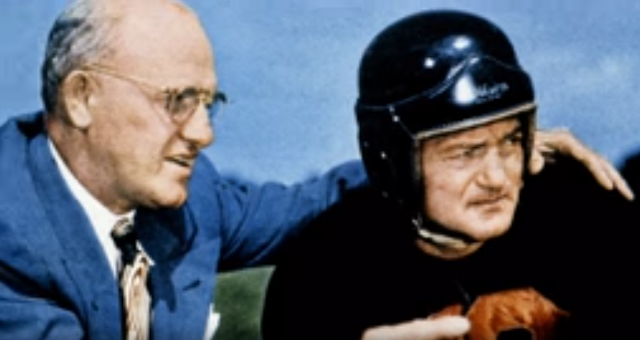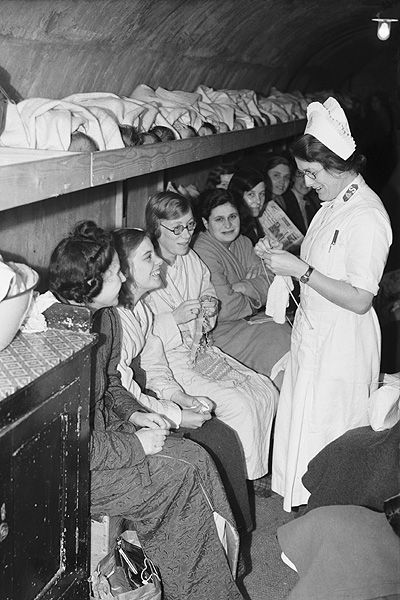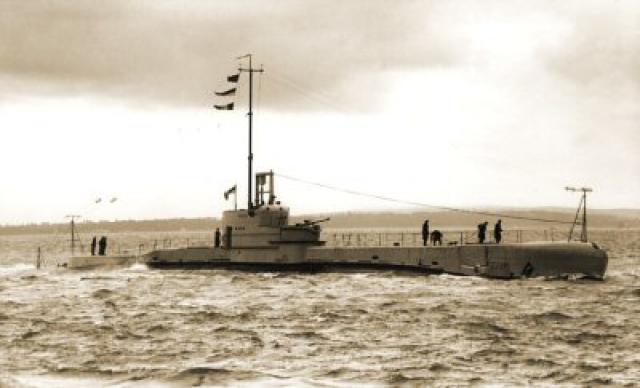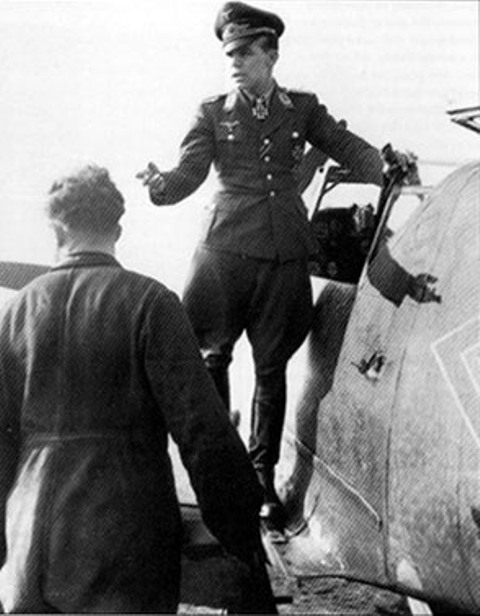Sunday 8 December 1940
 |
| "The British warship approaches the IDARWALD." 8 December 1940. © IWM (A 2843) |
General Cesare Maria de Vecchi, commander of the Italian forces based in the Aegean Sea, and Inigo Campioni, a commander with the Italian Navy 1st Naval Squadron. also are rumored to be leaving their posts. However, there is no official announcement of this at this time.
The Greeks, meanwhile, continue pressing forward. Today, Greek I Corps captures Gjirokastër (Argyrokastro) and Delvinë (Dervitsani).
European Air Operations: After taking a day off at least partly due to the weather, the Luftwaffe comes back with full force. KG 55 and other formations send 413 bombers against London, maintaining a prolonged bombardment that lasts from dusk to dawn. Damage is extensive, including the Tower of London and House of Commons. There are seven hospitals destroyed along with four churches from the 115,000 incendiaries drop and 387 tons of high explosives. The Luftwaffe loses only two bombers, one of which crashes during takeoff at Villacoublay airfield.
RAF Bomber Command attacks Dusseldorf, Lorient, Bordeaux, Brest, Flushing, Gravelines, Dunkirk and various airfields in northwest Europe.
 |
| "The IDARWALD was cast off overnight, and next morning the British warship coming alongside again finds the midships section of the German freighter burnt out and the ship very low in the water." © IWM (A 2842). |
U-103 (Kptl. Viktor Schütze), on its 2nd patrol out of Lorient and sailing in the Western Approaches, torpedoes and sinks British 5186-ton freighter Calabria. The Calabria is carrying 4000 tons of iron, 3050 tons of tea and 1870 tons of oilcake. It also has 230 passengers, primarily Indian sailors being brought to England to crew other ships, in addition to 130 crew. The U-boat puts two torpedoes into the freighter in bright moonlight. The ship sinks quickly - typical for ships carrying heavy cargo - and all 360 aboard perish. The losses include the 79-year-old ship's cook, Santan Martins, believed to be the oldest merchant marine crewman to lose his life during the war. The Calabria's ship's bell had been removed prior to this voyage and occasionally comes up for auction.
U-140 (Kptlt. Hans-Peter Hinsch), on its only war patrol (it is a small Type IID submarine unsuited to ocean work), is sailing north of Ireland when he spots a victim. It is the steel 3-masted 2816-ton Finnish bark Penang, which has sailed all the way from Australia with a load of grain for Ireland. Hinsch torpedoes and sinks the bark, and all 18 crew aboard perish.
Later in the day, Hinsch hears a ship nearby requesting assistance by radio. The 5652-ton British freighter Ashcrest has suffered in the recent storms and its rudder is damaged. Hinsch puts a torpedo into it as well, sinking it and causing the deaths of all 37 crew. These are U-140's final victories in the Atlantic and it soon heads back to port.
British 311-ton freighter Actuality hits a mine about 6 km off the Isle of Sheppey, Kent (near Mouse Light Vessel) and sinks. There are six deaths.
British 5186-ton freighter Anthea collides with Dutch freighter Maasdam off the Grand Banks of Canada and the crew abandons it, with the ship later sinking.
Canadian freighter Beothic runs aground about two miles from Griquet in the Straits of Belle Isle off Cape Bauld, Newfoundland and is lost.
British 429-ton freighter Goosethorn sinks in rough weather in Liverpool Bay.
German 3210-ton freighter Adalia collides with fellow freighter Mendoza during the night in Flushing Roads in the North Sea near Vlissingen, Zeeland, and sinks.
The Luftwaffe damages 5281-ton British freighter Treverbyn.
Royal Navy destroyer HMS Windsor hits a mine off Aldeburgh and sustains heavy damage. It requires a tow to Harwich by the fellow destroyer HMS Garth.
German battleship Bismarck exits the Kiel Canal.
Convoy OB 256 departs from Liverpool, Convoys FS 356 and 357 depart from Methil, Convoy SC 15 departs from St. John, New Brunswick, Convoy AS 8 from Piraeus is postponed, .
 |
| Bears coach George Halas and Quarterback Sid Luckman win the NFL Championship, 73-0. |
The Operation Compass preparations include RAF raids on Italian airfields and ports in North Africa. Wellingtons based on Malta and near Cairo attack Benina airfield in Libya, bombing 10 Italian aircraft.
The Italians begin to become aware that something is going on. An Italian reconnaissance crew flying over the air spots the British and advises superiors that something is imminent. However, they do not pass the information to General Pietro Maletti, commander of the Raggruppamento Maletti (Maletti Group) of the Regio Corpo Truppe Coloniali della Libia (Royal Corps of Libyan Colonial Troops). In any event, it is probably too late for the Italians to take any effective action at this late point anyway.
French light cruiser Primauguet, carrying 1200 tons of gold reserves of the Banque de France and the Polish government, arrives at Casablanca from Dakar.
 |
| Waco Sunday Tribune-Herald of Waco, Texas, December 8, 1940. |
- Triadic (6480 tons) (one death)
- Triaster (6129 tons)
- Komata (4000 tons) (two deaths).
Battle of the Indian Ocean: German raiders Atlantis and Pinguin rendezvous in the middle of the Indian Ocean and plan future operations. They await the arrival of captured Norwegian tanker Storstad, which has a full load of 10,000 tons of diesel oil.
Anglo/US Relations: British ambassador to the US Lord Lothian suggests to Winston Churchill that he write to President Roosevelt summarizing events during the year. Churchill complies with a lengthy telegram in which he requests:
- US Neutrality Patrols further into the Atlantic;
- That the US pressure Ireland to allow British bases there, in exchange for a post-war unified Ireland;
- 2,000 combat aircraft per month;
- More merchant shipping construction.
The danger of Great Britain being destroyed by a swift, overwhelming blow, has for the time being very greatly receded. In its place, there is a long, gradually-maturing danger, less sudden and less spectacular, but equally deadly.As both men know, the rub is that Great Britain is running out of money. However, Roosevelt has been doing some creative thinking about that issue which he still wants to think about some more.
 |
| Bears coach George Halas and Sid Luckman begin a dynasty on 8 December 1940. |
Canada: Parliament imposes a 25% excise tax on Canadian luxury manufacturers and suspends imports of manufactured goods from the United States. The government also orders eight new minesweepers.
British Homefront: The London press speculates about what is going on within the Mussolini high command, saying it is in "disarray."
American Homefront: Super Bowls have a reputation for being blowouts, but back in the day the situation was even more lopsided. The NFL has the biggest blowout in its entire history, and it is in the Championship Playoff Game held in Washington. The Chicago Bears, behind Sid Luckman, beat the Washington Redskins, 73-0. It also is the first NFL championship game broadcast nationally on Mutual Radio, narrated by Red Barber. The Redskins had beaten the Bears, 7-3, behind Sammy Baugh just a few weeks earlier, so everybody anticipated a defensive struggle.
December 1940
December 1, 1940: Wiking Division Forms
December 2, 1940: Convoy HX 90 Destruction
December 3, 1940: Greeks Advancing
December 4, 1940: Italian Command Shakeup
December 5, 1940: Thor Strikes Hard
December 6, 1940: Hitler's Cousin Gassed
December 7, 1940: Storms At Sea
December 8, 1940: Freighter Idarwald Seized
December 9, 1940: Operation Compass Begins
December 10, 1940: Operation Attila Planned
December 11, 1940: Rhein Wrecked
December 12, 1940: Operation Fritz
December 13, 1940: Operation Marita Planned
December 14, 1940: Plutonium Discovered
December 15, 1940: Napoleon II Returns
December 16, 1940: Operation Abigail Rachel
December 17, 1940: Garden Hoses and War
December 18, 1940: Barbarossa Directive
December 19, 1940: Risto Ryti Takes Over
December 20, 1940: Liverpool Blitz, Captain America
December 21, 1940: Moral Aggression
December 22, 1940: Manchester Blitz
December 23, 1940: Hitler at Cap Gris Nez
December 24, 1940: Hitler at Abbeville
December 25, 1940: Hipper's Great Escape
December 26, 1940: Scheer's Happy Rendezvous
December 27, 1940: Komet Shells Nauru
December 28, 1940: Sorge Spills
December 29, 1940: Arsenal of Democracy
December 30, 1940: London Devastated
December 31 1940: Roosevelt's Decent Proposal
2020






